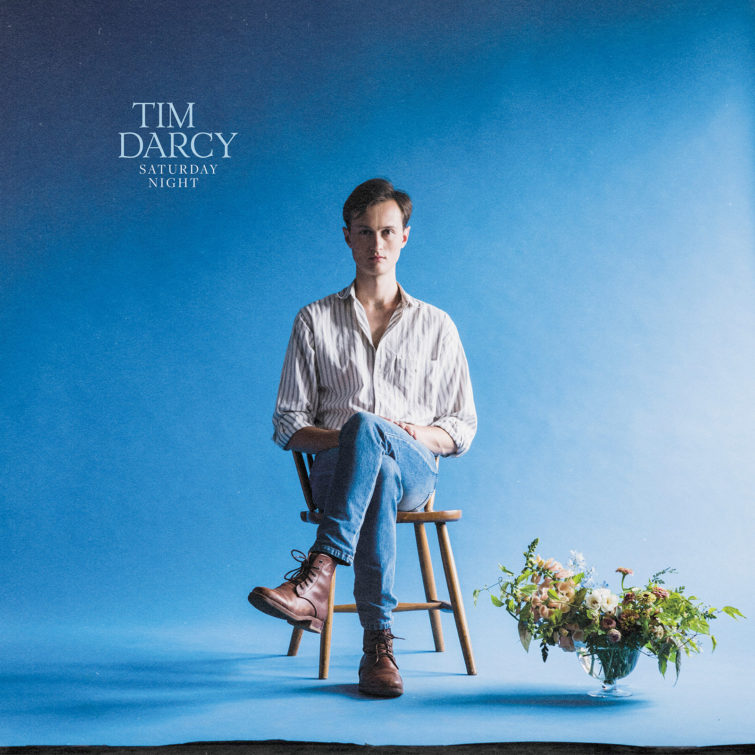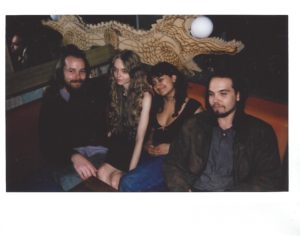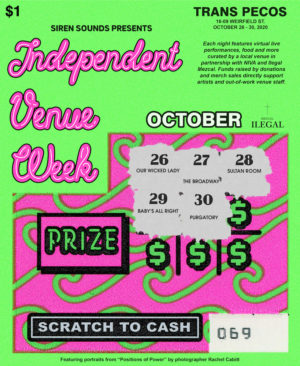Coming off multiple tours supporting Ought’s Sun Coming Down, Tim Darcy is bracing for a tour of his first solo album, Saturday Night. The album was recorded at the same time as Sun Coming Down, but listening to it, you’d have no idea. It’s fresh and complete, full of punchy lyrics and weepy guitars. A few instrumental tracks evoke a clashing loneliness & togetherness—a prevailing theme on any given Saturday night.
While not a concept album, Saturday Night is comfortably composed: it perfectly matches the energy of a party dwindling away towards the solitary witching hour. The opening track, “Tall Glass of Water” has been drawing fitting comparisons to The Strokes & The Velvet Underground. It’s youthful and jaunty, with a mid-song tempo change and a lyric fit for both Julian and Lou, “Is it love, or is it desire?” On many of the tracks, there’s a beautiful shimmer of Blonde on Blonde-era strumming matched to a colder strain of thought. “I wish I’d ran away sooner, to save time,” Tim humbly decants onto the title track. The second single, “Still Waking Up” is classically poppy bent with a touch of romantic neurosis. The roomy ballad “Saint Germain” expands outward until falling overboard into the somber piano track, “What’d You Release?” Here, Darcy is hinging on connectedness: “And I focus my eyes ’til the god damn street lights / look like dandelions / and I could pinch them with my thumb / and shake them around until all the seeds hit the ground / and they grow up one by one / ’til there’s a few dozen of them for anyone.”
To get into his headspace, I had a nice fire-side chat with Tim over the phone during last week’s blizzard.
You’ve said that Saturday Night is “personal.” What is personal to you, besides leaving the democratic arena of song-writing in a band?
Yeah, that’s a big part of it—sorry, if it gets too loud, I’m making tacos right now—in Ought everything is wholly collaborative, where people come in with riffs or ideas to put together and try out. Even some of the songs on my record, I can think of at least one, where it was a riff I’d tried in Ought and it just didn’t energetically work, it didn’t flow. Part of it is that we’ve established a rhythm where everything is written in the room with all four of us holding the wheel. For the solo record it was older songs of mine that I hadn’t been able to let go of, that I still felt very attached to, and then I had some newer stuff. I was really craving to record even just a couple of songs. The opportunity came up to do that with some friends in Toronto, so they hopped on it, and started to sound really good, and it was feeling really good. So over the next six months I came back about half a dozen times and we kept laying down tracks until we cut a whole record. It came about in a pretty unique way.
So it was written largely at the same time as Sun Coming Down?
Well, it was recorded at the same time. Again, some of these songs predate Ought existing, but it did largely overlap with that record. It was a pretty tricky shift, especially being really deep in writing for Sun Coming Down and then coming over to Toronto with expectation that we were gonna go into the studio. It was a bit of concern, unsure if I could switch gears that abruptly. I’m really glad that I worked with the people that I did, Ross Gillard and Amy Fort, who are buds of mine that produced the record. Yeah… they really pushed me to go in and have fun. And Charlotte, who plays drums on the record, is from Montreal, so it was an amazing atmosphere to be creative in.
I can hardly read two books at the same time, so I’m fascinated by the ability to work on two highly conceptual pieces, like an album or novel, simultaneously. I was even researching it, to see if any authors had done that—Nabokov or something.
[Laughs] Yeah, it was a big thing for me, having to pull up those boot straps. It was a period in my life where I wasn’t drinking, I was just purely focused on trying to get every moment out of those days. I wouldn’t have been able to switch mindsets so easily if I didn’t have different people on either end—helping to set up a different aura around each record. With Ought, in Montreal, there’s this established world, with the band space, and the same people. In Toronto, the friends that I have there weren’t thinking about the Ought songs, they were more focused on asking me, “Cool. Well, what’s next with your record?” It could’ve never happened without that.A double life, almost.
Yeah, I could see like a writer being a journalist during the week and then on the weekends they can go into a different room in their house to work on something else—you know, environment is such a huge part of it. When I’m creating at least.
James Cameron apparently wrote the script for Aliens and the second Rambo movie at the same time.
Well, haha, maybe that was easy because only one of them was good [laughs]
Speaking of James Cameron, are there any cinematic influences on Saturday Night?
Well you know, I truly love dialogue. I also love poetic filmmaking—don’t get me wrong—with visual metaphors. But what always gets me, what’s the most heart-ticking, is excellent dialogue. It’s also the thing that will turn me away the quickest. Something that I love about a show like The Wire, it’s almost as if you could watch it forever. You get invested in the characters because they feel so real; what they’re saying is so full of life. It’s mind-blowing, most the show is just people talking, and you could just watch it endlessly.
If I were to hear it out of context, the very beginning of the track “You Felt Comfort” would lead me to believe it’s a 70s punk track. But once the lyrics set in, “You felt comfort/and release/for a trauma that was making you weep,” damn if it couldn’t be a Leonard Cohen line. I was curious about your intentions with juxtaposition and extremes.
Thank you. The duality of that song, even getting ready for this tour, we’ve got a version of that song that’s much slower with a lot more space in it. What I like about that version is that the lyrics get to shine through. But it’s not that one is better than the other, because that kind of teenage angst & energy of the recorded version, is really a part of that feeling: that song is about having a friend who is very depressed, maybe talking about taking their own life, and the sort of strange emotional position of being an ally to someone in that state of mind, but also being a friend. And of course it crosses over into more universal themes of depression. I feel like I could dress it up a lot of ways, because it’s essentially three chords and a whole bunch of words.
You seem to like extremes, going so far as to sing, “I think I’ve finally found my limit, it was deep enough to swim in it,” on the somber folk track “Found My Limit.”
There’s certainly an amount of existentialism in the record that is different from Ought—well obviously, Ought dabbles in it as well… I say this as if I’m not the lyricist of both—I guess the theme of existentialism, it’s just such a giant word. The reason I like that word itself is because it suggests an ‘exit.’ That bide of life that people feel. Whether or not people prescribe that word to what is a very familiar feeling, that feeling of surreal reality, that feeling of disconnect. It’s not inherently a bad thing. There’s so much art and writing about that, and it happens all over the place, when you get your heart broken, or when you have a bad day at work.
With existentialism, you mean writers like Sartre, Camus, etc.
Absolutely, I think they’re part of a group of people that have said really beautiful things about the condition of being alive. That sort of “ultimate arc” of finding your own path, but at the same time interacting with others, with friends, with lovers, whatever it might be. At the same time, it’s books and art, which are, for me, friends in a weird way. Not actually personified, but part of the reason that I like keeping books and records is because if I felt like I’ve learned something, or grown from them. It’s nice to have that continued presence in your life, after the fact.
On “Still Waking Up” you literally name-drop “A Hard Day’s Night” as a “popular song,” and by the final track, there’s a 40-second segment of alien-esque static. Aside from content, the song formats also feel like they start out with pop-structures and sway towards experimentation, making for an even stronger thematic experience. What were you hoping to convey with this intricate mapping of structure and content?
I can only give myself so much credit because I definitely didn’t set out to create a theme or a concept album, or anything like that. But I really love that record as a piece of art; I love records where a sequence is woven into the tracks, so that by the time the record is finished, I’ve had a complete experience. I mean, it’s kind of superficial, as forty arbitrary minutes that a band or artist crafted. Nonetheless, there’s a lot of amazing room to move within that format. For example, that sort of refrain you’re talking about at the end of the record, on “Joan, Pt. 3,” I was fine with it, but I didn’t think it made the record stronger. But then Roth or Amy suggested we mess around with it and figure out where else we could put it. So, it kind of comes back at the end as a little bit of lightness that returns after the pretty heavy toned ambient section. I always picture, at the beginning of the record you’re in a crowded room, and slowly you leave the room, and by the end of the record you’re in a field, alone.
Speaking of this lively night becoming increasingly empty, in a 2015 interview promoting Sun Coming Down, there’s mention of the apocalyptic cultural obsession with statements like YOLO and “live for the night.” “Saturday Night” as a concept sounds like it would be a party anthem album, but it’s really an album that becomes sparser by the minute. Were you attempting to flip the term on its head, or is it really just about the songs being recorded on Saturday Night?
Well, there’s a lot of layers to it. It is something that I undeniably have a fascination with, even in a song like “Beautiful Blue Sky” with Ought, it kind of comes up. I think that there is a spiritual release in hedonism, but at the same time, a subversive arena, as well as place that people come together un-egotistically—the purest expression of people “gettin’ down.” Even if it’s just a concert, not necessarily dancing, there’s that feeling of being so “in it,” you’re seeing something truly great. You feel this commonality with everyone around you. There’s something about that light in the darkness that’s really appealing, and especially in that sort of fantastical standard Western cookie-cutter lifestyle of nine-to-five, you have your set “free time.” Some people feel really connected to their work and to what they’re doing, and incredible feeling, something that everyone should be able to feel. Even if they’re only making a chair something, feeling that sense of connection and pride. And then outside of that, there’s people that a sot of menial crap job—this is winding far away from YOLO right now—just that sense of togetherness that everyone yearns for. It’s one of the reasons to go see live music, or even go to the food court at the mall and you see the old Greek men standing around, just hanging out, trying not to think about their jobs for a bit.
The climatic mental-image sequence in the “Still Waking Up” video calls to mind the Twilight Zone intro, while the “real world” parts of the video feel like a hypertext of Say Anything and Harold & Maude. How did you and the director, Meg Remy of U.S. Girls, conceptualize it?
Meg gets all the credit for that! She had a really good idea and she asked what I wanted from the video. So it came down to the “going inside the brain” at the midsection, which I was totally into. Honestly, the video that she came back with was better than anything I possibly could have hoped for. She said, “Yeah, it’s gonna kinda cool and freaky,” but I think she made a beautiful piece of art that totally fits the song.
The two instrumental tracks, “First Final Days” and “Beyond Me,” quickly became favorites of mine – I have a thing for ambient music while working – but I’d like to know where your headspace was while working on those.
I too really love ambient and instrumental music. In the year leading up to this record I had been listening to mostly ambient music in the van. Instrumental music for me can provide a sort of release that vocal-based music cannot, and I think with vocals is a specific catharsis—you can latch onto ideas, or even the personality of someone, you can associate with their angst or pain or whatever it is. And as they have a personal catharsis, as the listener, you get that as well. You can launch ideas in a much more broadly poetic sense with words, but with ambient music, it’s much easier to forget the body. If I need to write something or get something done, I’ll listen to The Field or this Japanese artist, Hakobune, I highly recommend. It’s much easier to forget your body and just get into the songs to reach that crystalline stage of just getting something out. Whether you’re just sitting in the van, or whatever, it’s the best way for me to get through a long drive. It’s kind of like time slips away, which is really nice.
Not to draw away from Saturday Night, but I enjoyed the spoken-word album with AJ Cornell quite a bit. Do you have intentions to produce any non-audio work in the future?
Well it’s something that’s been coming up more that’s been really awesome… I’ve had a few opportunities to publish poetry, which I’d never done outside of university. Which is really great for me because it’s the art form that I’ve been working on the longest. I just had a poem in FLOOD Magazine and a few more coming out in a California-based magazine. I’m really stoked. And I mean, if people are interested, I’m really happy to keep putting some of that work out there. I also love that world of spoken word recordings, like Gil Scott Heron, and there’s Ruth White who does the “Flowers of Evil” by Baudelaire; it’s got a bunch of freaky music, it’s a cool record. I think that poetry at it’s purest form is still just on a piece of blank paper, totally laid bare.
Who will be touring as your backing band?
I have a really awesome power trio who are gonna do both sides of the pond with me: Charlotte Cornfield, who plays drums on the record, and then a friend, Rachael Cardiello, is playing viola & bass. We’re doing some three-part harmonies, which is really exciting, because there’s the choir on Saturday Night, and we obviously can’t replicate that. But it’s cool to have two strong singers to bring out that element.
Saturday Night comes out February 17th on Jagjaguwar. Catch Tim Darcy at Baby’s All Right this Wednesday, February 15th. See the rest of his tour dates here.










